When it comes to iconic female writers, Emily Brontë will forever hold a special place in the annals of literary history with 1847’s Wuthering Heights. Part Gothic novel, thick with Romanticism, it is a story that has survived the test of time, and now its talented creator serves as the central figure in a new film. Emily, starring Emma Mackey, Alexandra Dowling, and Amelia Gething as the infamous Brontë sisters, was released in select U.S. theaters on February 17, 2023, thanks to Bleecker Street.
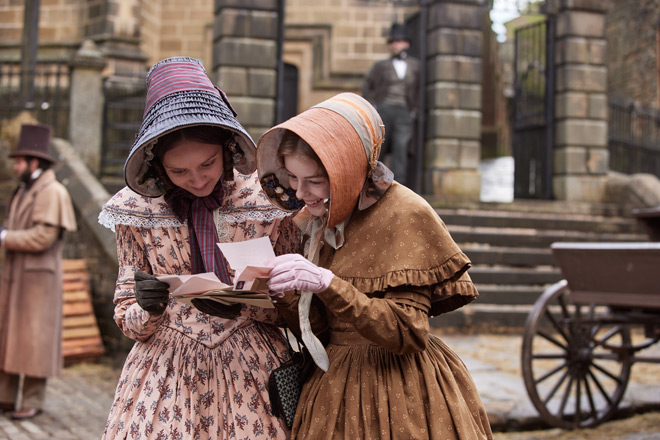
Do not confuse Frances O’Connor’s written and directorial debut, genius as it might be, with fact. This is a tale that draws from the British author’s life, utilizing real-life individuals as fodder for fictional embellishments, crafting a story that dramatically and beautifully mirrors Brontë’s own literary masterpiece. Much of what O’Connor’s film suggests, controversial as it may be for some, is heavily inspired by that novel, delivering a screenplay that is itself a piece of art.
But it is still fiction. So, while the historical record suggests that Emily (Mackey: Eiffel 2021, Death on the Nile 2022) and Charlotte (Dowling: Game of Thrones series, The Musketeers series) were not always in agreement, whether the pair were as diametrically opposed as they appear here, is up for heavy debate. However, O’Connor’s bold choice to set the sisters at odds works flawlessly and begins a silent war that sees the elder sister, Charlotte, coldly testifying that Wuthering Heights is “full of selfish people who only care for themselves.” Suitably, the story that follows is oft this, as well.
Visual poetry set to a phenomenal soundtrack, the film paints the portrait of a shy young woman possessed by her loves of literature, storytelling, and nature. A daydreamer who does not wish to follow the accepted path, she is the polar opposite of her eldest sister, Charlotte. Drawn to the soft-spoken whimsy of her younger sister Anne (Gething: The Amelia Gething Complex series, The Spanish Princess series), and the boisterous freedom of brother Branwell (Fionn Whitehead: Dunkirk 2017, Black Mirror: Bandersnatch 2018), Mackey’s Emily Jane is an intelligent and educated woman who questions the popular beliefs of her time.
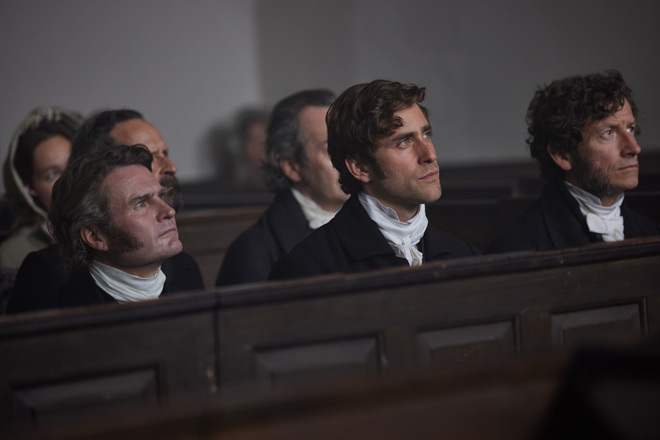
As was the case for many living in nineteenth-century England, Emily’s family life is inherently intertwined with all things Christian and theology, as her widower father (Adrian Dunbar: The Crying Game 1992, Line of Duty series) is the leader of the local congregation. It is this position that has afforded the Brontë sisters the privilege to have a voice as well as to dream. Indeed, it is the family’s standing within their community that allows Mr. Brontë to take on an assistant curate, the handsome William Weightman (Oliver Jackson-Cohen: The Haunting of Hill House mini-series, The Invisible Man 2020), who quickly becomes Emily’s French tutor.
In presenting strong-minded Brontë women on the big screen, O’Connor appeals to the sense and sensibilities of modern women. For there is a joy to be had in seeing Emily Brontë portrayed as a defiant character, one who openly challenges men and scowls at the idea of being caged by others’ expectations. Was the actual Brontë a feminist? We can’t say but Mackey’s performance in the role is stupendous, carefully illustrating a three-dimensional character who sought love and inspiration above all else. The suggestion of where she found that love is delicate yet not too subtle; her relationship with one man bordering on scandalous, her time spent with another mottled with languid sensuality. It is modern, too, to explore the mental health of our central figure, a woman who is painted here as enjoying the solitude and safety of her family home, and prone to anxiety when forced to socialize.
Still, throughout its 130-minute runtime, Emily explores the Gothic and emotional, echoing the heartbreak that comes with each reading of Wuthering Heights. Comparisons between the two stories are unavoidable, each centering around love and loss, wallowing in amid the ghosts of what could have been. Yet, O’Connor is careful to keep her nineteenth-century fiction palatable for a twenty-first-century audience. It is a balance that is aided by the exquisite cinematography of Nanu Segal (Donkey Punch 2008, An Evening with Beverly Luff Linn 2018), impeccable costume design from Michael O’Connor (The Duchess 2008, Jane Eyre 2011), understated hair and makeup designed by Lucy Cain (Shaun of the Dead 2004, The People We Hate at the Wedding series), as well as a truly extravagant soundtrack from Abel Korzeniowski (Romeo & Juliet 2013, Nocturnal Animals 2016).
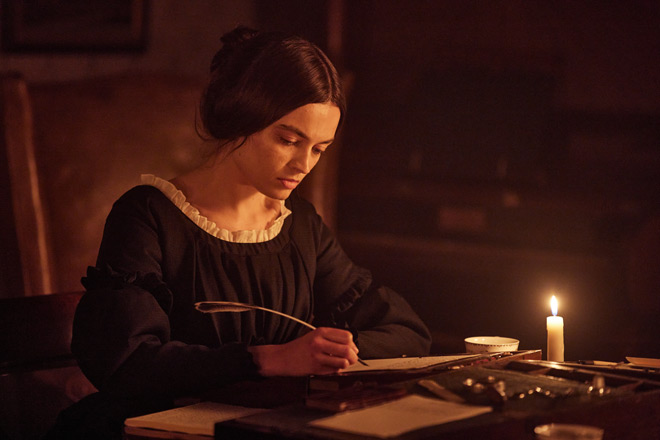
In fact, Emily does everything right. From comedic lines to an eerie moment of paranormalcy, it is a moviegoing experience that provides intrigue while raising a plethora of debate. Especially when it comes to the ferocious dichotomy that exists between Mackey and Dowling’s characters, Emily and Charlotte. Each is a compelling woman, as well as a metaphor for a way of life, and likely to polarize moviegoers. Ultimately, it is this sisterly tete-a-tete that drags viewers through some of the densest of emotions, challenging what it means to be “strange” and free. For all of the above, Cryptic Rock gives Emily 5 out of 5 stars.
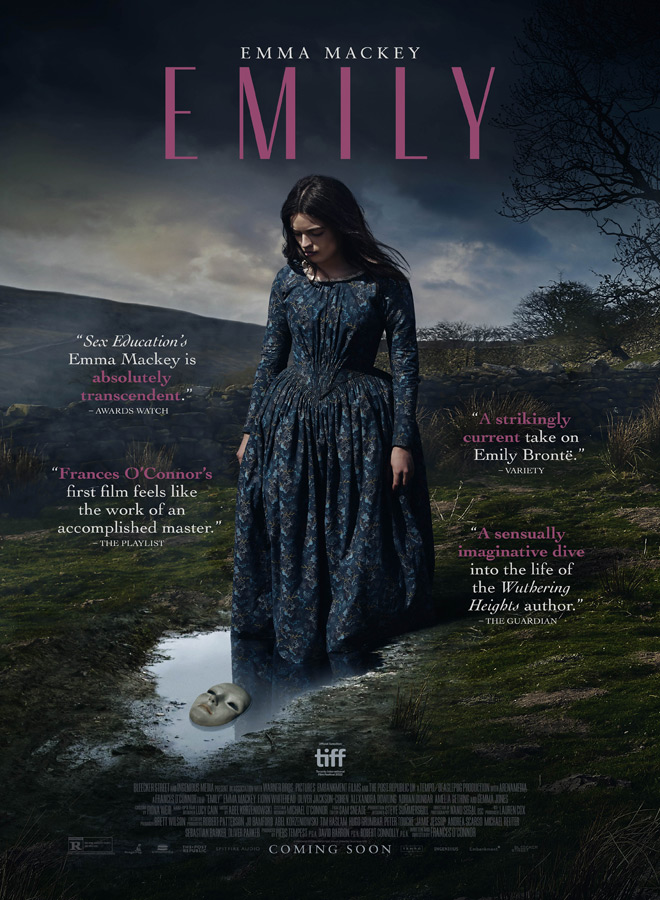


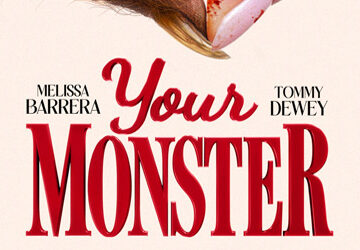


No comment